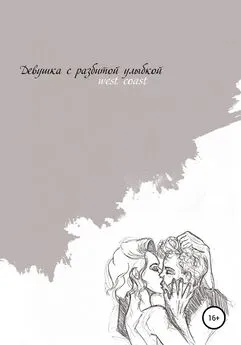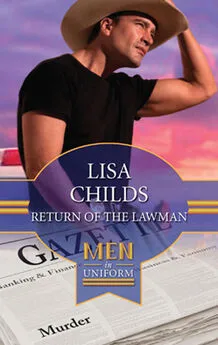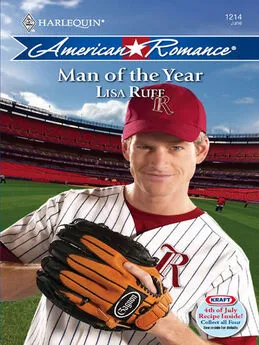Lisa Plumley - Notorious in the West
- Название:Notorious in the West
- Автор:
- Жанр:
- Издательство:неизвестно
- Год:неизвестен
- ISBN:нет данных
- Рейтинг:
- Избранное:Добавить в избранное
-
Отзывы:
-
Ваша оценка:
Lisa Plumley - Notorious in the West краткое содержание
Notorious in the West - читать онлайн бесплатно ознакомительный отрывок
Интервал:
Закладка:
He wanted that future. His mother couldn’t stop that.
“Maybe you’ll want it later.” He picked up the stew, wended his way past a pile of unfinished mending—piecework was all his mother could manage, owing to her continual “nervous strain”—and started an enamelware pot of coffee in the kitchen. Keeping his voice even, Griffin called into the other room, “Coffee?”
“Men don’t make coffee,” his mother grumbled. “Men don’t.”
He offered her a cup all the same. He was used to her abuse. He knew she didn’t mean it. Not when she was like this.
“Drink it,” he urged. “You’ll feel better if you do.”
“Humph. You’re getting older. Bigger.” Her accusatory gaze moved from his shoulders to his face. “You don’t need me.”
He knew how to answer that. “You’re all I have.”
But instead of the smile he yearned for—instead of the reward he wanted for holding inside the rebuke that kicked to break free—his mother gave him a disapproving finger wag. “You’re getting ready to leave! That’s why you were gone all day—why you’re gone every day. I see it all over your face!”
Griffin was “gone every day” because he was working. Because he was trying his hardest to keep them in baked beans and brown bread, eaten in their own home instead of in a charity ward. But he didn’t want to say so. That would only rile his mother. Everything got worse when he riled his mother.
Besides, he loved her. Despite...everything.
He set down the coffee nearby. “I’m not going anyplace.”
“That’s what he said, too. But you and he—you’re the same kind.” Another critical look. “You’ve got the same mark on you that he did—the same sign that tells me you’re rotten inside.”
Griffin tried to ignore that, too, the same way he’d ignored her command to close the curtains. But he was only one boy—a boy of fourteen, at that. He was old enough to work but not to shield himself against the vitriol in his mother’s expression. He was, as she’d pointed out, not a man. Not yet.
“It makes me sick to look at you,” she went on. “Sick!”
Her scathing tone dug deeply. Griffin flinched.
“It makes me sick to have birthed you into this world.” His mother’s voice trembled with emotion. “You’re going to wreak havoc on it, just like he did, and it will be my fault.”
Griffin knew what to say to that, too.
“It’s not your fault. It never was.” He kept his voice low, his hands steady, his manner patient. He’d practiced this part. He knew what to say. He knew how to say it. “You did all you could for him. You were a good wife. You’re a good—”
Mother, he meant to say, but suddenly he wasn’t so sure.
Was she a good mother? Mary’s mother was a kind woman. She was gentle. She never would have said such harsh things to her own child. All at once, Griffin was sure of it. He straightened.
“Good what?” his mother demanded. “I’m a good what?”
He could tell by the wounded sheen in her eyes that she knew the praise he was withholding. At the same moment, Griffin realized he meant to keep right on withholding it. There was no way he’d give in. Not even to make her feel better. Not this time. If that made him as rotten as she’d said—
It did make him as rotten as she’d said, he understood just then, and felt despair rush through him. Of course his mother was right about him. She was his mother! She knew him, inside out.
“You can’t say it because you’re evil, like him.” Her voice cut into his self-condemnation, scattering his thoughts like the hot embers he shoveled all day at the glass factory. Her gaze pinned him in place, making him listen—making him endure the way she scowled at him, from his scruffy boots to his newly shorn dark hair. “You’re cruel,” she judged. “That’s the mark of it, right there on your face. Everyone can see it. Especially me.”
“No. I’m not marked.” Somehow, Griffin found the strength to raise his chin. “There’s nothing wrong with my face.”
But even as he said it, his voice quavered. His throat closed up. It ached, just like his hands did. He’d clenched his fists, he saw, without realizing it. Because he knew his mother was telling the truth. After all, people had stared at him his whole life. They’d pointed and whispered. They’d laughed.
They’d turned away. Away from him.
Even at the glass factory, where he’d earned some respect, they’d nicknamed him Hook. Hook Turner. Griffin hadn’t blamed them for that. His oversize hook of a nose was conspicuous. The nickname had begged to be given. But now he wondered...
Did everyone see what his mother did when they looked at him? Did everyone see his lack of character, his lack of strength, his lack of goodness?
You’re evil, he heard her say again, so callously and calmly. You’re rotten inside. You’re cruel. Everyone can see it.
Reliving those words, Griffin felt a hot rush of shame. There was no point sidestepping the truth. Ever since his voice had deepened and his shoulders had widened, his features had matured, too. He’d definitely inherited his father’s nose.
And with it, it seemed, his father’s wicked nature.
All Griffin could remember now of his father was his husky laughter and—hazily—his face, with its similarly prominent hawklike nose and incongruously merry eyes. Edward Turner had been scarred by the same disfigurement that now marked Griffin.
He’d been made uglier by it, even to his wife.
Of course he had. After all, everyone knew that having a good moral character was what made someone nice to look at. Virtuous women were beautiful. Decent men were handsome. That was why they were admired. Griffin didn’t know how he’d let himself overlook that fact. Maybe he’d just needed to. Until now.
“That’s the inheritance of the Turner men,” his mother went on. “I’d hoped you’d be spared. Now I can see you were not. You’re rotten, through and through.” She gave him a punishing look, confirming it. “It’s as plain as the nose on your face.”
If that was meant to be a joke, it wasn’t funny.
From somewhere, though, Griffin found a glimmer of defiance. Maybe this didn’t have to be the end of him—the end of hope for him. It was whispered that, someplace in the city, Edward Turner was prospering. That he’d made good, despite his glaring nasal defect. Maybe Griffin could do the same.
Not that his father’s success meant much to his starving and abandoned family. To them, he might as well have been dead.
Maybe he hadn’t been able to bear the sight of his son....
Griffin fixed his spine. “It doesn’t matter. I’ll work.” I’ll work like my father did. “I’ll overcome it.”
At that, his mother burst out in unpleasant laughter. “You can’t overcome that, boy!” She pointed. “It’s ludicrous to try.”
But Griffin knew that he could. He had to. What other choice was there? He couldn’t go through life with his hated defect being all that people saw when they looked at him.
It was bad enough that he was helpless to hide it. He couldn’t wear a bandito’s bandanna, like a desperado from a dime novel. His only hat wasn’t big enough to obscure his face. And now, with his hair cropped so closely, his nose was even more noticeable. No wonder his mother had chosen today to tell him these things. Doubtless, she’d taken one look at his protruding feature and been overcome. That was why she’d been so cruel.
She hadn’t been able to help herself.
It had been for his own good, he reckoned.
He had to make up for his flaw somehow, Griffin knew. He had to amass other things, things that would compensate for his appearance. Things that would make him wealthy, make him whole, make him a real man—a real man who wasn’t afraid of rats, didn’t make coffee for the womenfolk and refused to be called Hook Turner by those knucks at the glass factory. Whatever it took, Griffin vowed, he would remake himself into someone stronger.
He couldn’t remake himself into someone better. He knew that now. Given his birthright, he couldn’t be good. So he would have to settle for being strong. Being hard. Being tough.
He would have to settle for being invulnerable.
As a first step, Griffin schooled his face into an impassive mask. It was sorely difficult, but he did it. Then he drew in a deep breath. He looked squarely at his mother.
“Someday,” he said, “you’ll know you were wrong about me.”
She gave him a dubious look. Pointedly, she glanced away.
“Someday,” he added, pushed by her obvious skepticism, “you’ll be proud to call me your son.”
His mother’s obstinate expression didn’t change. Neither did her refusal to acknowledge his promise. But Griffin didn’t care. He couldn’t allow himself to care. He wouldn’t.
What he lacked in other ways—what he longed for and couldn’t have—he could make up for with single-mindedness, Griffin reasoned. His mother might be stubborn—too stubborn, even, to love him—but he was stubborn, too. Stubborn and smart and ready to work his fingers to the bone to earn his success. Whatever it took to change his life, he would do it.
“You will be proud of me,” he repeated. “I swear it.”
Then, without waiting for his mother to answer him, Griffin left her with her cold coffee and her charity Irish stew and went to figure out how he could most quickly make his fortune.
Because everything started with money, he knew...and ended with him forcing the world to admit it was wrong about Griffin Turner and what he was capable of—hawklike nose and all.
Chapter Two
June 1872, Morrow Creek, northern Arizona Territory
As a girl who had never experienced neuralgia, lassitude or vexing biliousness, Olivia Mouton should not have felt drawn to the traveling medicine show that came to town on the Sunday after her thirteenth birthday. But there was something about the peddler’s intriguing medicinal claims that pulled her nearer.
“This latest miracle elixir will end nervous troubles and colonic maladies alike. It will restore youth and vigor!” The charming peddler, finely dressed in a woolen suit with a fancy waistcoat, held aloft a full glass bottle. Its label was typeset with an impressively diverse list of the ailments it purported to achieve a remedy for. The man wasted no time explaining his wares’ efficacy. “Wise lore from the savage! Grandmother’s soothing tinctures! Scrupulous scientific approaches! All are represented here!” He gave a graceful gesture, then grinned invitingly at the crowd. “Step right up and see for yourselves.”
Interestedly, Olivia examined the wares he’d arrayed in tidy rows atop his wagon’s hinged backboard. There were brown and green bottles full of distillations, cork-stoppered vials of fascinating tonics and flat tins of curative powders. There were jars of creams and ointments, sachets of dried herbs and boxes of exotic-smelling teas printed with celestial characters. There was even a selection of preserved exotic fruits, which—according to their labels—could improve “stamina.” Olivia knew it was unlikely that the medicine show’s merchandise could accomplish even half the things the peddler promised in his spiel, but that hadn’t stopped an eager crowd from forming.
After all, his arrival was the single most exciting occurrence in sleepy Morrow Creek township since the circuit judge had rode in a week or so ago...and promptly gotten too drunk on mescal to hear any cases or cast any judgments on wrongdoers.
Most days, nothing much happened in her tiny territorial hometown. Miners trudged off to their claims in the surrounding mountainside. Rail workers toiled on the incoming rail spur, felling the obstructive ponderosa pines and laying track past the burbling namesake creek. Wives and laundresses went about their chores and tended their children with dusty equanimity.
Читать дальшеИнтервал:
Закладка:










